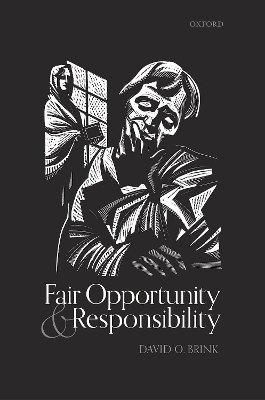
Fair Opportunity and Responsibility
Oxford University Press (Verlag)
978-0-19-885946-8 (ISBN)
Fair Opportunity and Responsibility lies at the intersection of moral psychology and criminal jurisprudence and analyzes responsibility and its relations to desert, culpability, excuse, blame, and punishment. It links responsibility with the reactive attitudes but makes the justification of the reactive attitudes depend on a prior and independent conception of responsibility. Responsibility and excuse are inversely related; an agent is responsible for misconduct if and only if it is not excused. As a result, we can study responsibility by understanding excuses. We excuse misconduct when an agent's capacities or opportunities are significantly impaired, because these capacities and opportunities are essential if agents are to have a fair opportunity to avoid wrongdoing. This conception of excuse tells us that responsibility itself consists in agents having suitable cognitive and volitional capacities - normative competence - and a fair opportunity to exercise these capacities free from undue interference - situational control. Because our reactive attitudes and practices presuppose the fair opportunity conception of responsibility, this supports a predominantly retributive conception of blame and punishment that treats culpable wrongdoing as the desert basis of blame and punishment. We can then apply the fair opportunity framework to assessing responsibility and excuse in circumstances of structural injustice, situational influences in ordinary circumstances and in wartime, insanity and psychopathy, immaturity, addiction, and crimes of passion. Though fair opportunity has important implications for each issue, treating them together allows us to explore common themes and appreciate the need to take partial responsibility and excuse seriously in our practices of blame and punishment.
David O. Brink is Distinguished Professor of Philosophy at the University of California, San Diego. His research is in ethical theory, history of ethics, moral psychology, and jurisprudence. He is the author of Moral Realism and The Foundations of Ethics (CUP 1989), Perfectionism and the Common Good (OUP 2003), and Mill's Progressive Principles (OUP 2013). He received a BA in Philosophy and Political Science from the University of Minnesota (1980) and a PhD in Philosophy from Cornell University (1984). He served as Assistant Professor at Case Western Reserve University and as Assistant and Associate Professor at Massachusetts Institute of Technology, before joining UC San Diego in 1994. He gave the 2013 Lindley Lecture.
1: Prolegomena
2: The Reactive Attitudes and Responsibility
3: The Fair Opportunity Conception of Responsibility
4: Fair Opportunity, Capacities, and Possibilities
5: Fair Opportunity and History
6: Blame, Punishment, and Predominant Retributivism
7: The Nature and Significance of Culpability
8: Affirmative Defenses: Principles and Puzzles
9: Structural Injustice and Fair Opportunity
10: Situationism and Fair Opportunity
11: Incompetence, Psychopathy, and Fair Opportunity
12: Immaturity and Fair Opportunity
13: Addiction and Fair Opportunity
14: Battered Persons, Provocation, and Fair Opportunity
15: Partial Responsibility and Excuse
| Erscheinungsdatum | 29.05.2021 |
|---|---|
| Verlagsort | Oxford |
| Sprache | englisch |
| Maße | 165 x 243 mm |
| Gewicht | 800 g |
| Themenwelt | Geisteswissenschaften ► Philosophie ► Ethik |
| Recht / Steuern ► Allgemeines / Lexika | |
| Recht / Steuern ► EU / Internationales Recht | |
| Recht / Steuern ► Strafrecht ► Strafverfahrensrecht | |
| ISBN-10 | 0-19-885946-5 / 0198859465 |
| ISBN-13 | 978-0-19-885946-8 / 9780198859468 |
| Zustand | Neuware |
| Haben Sie eine Frage zum Produkt? |
aus dem Bereich


